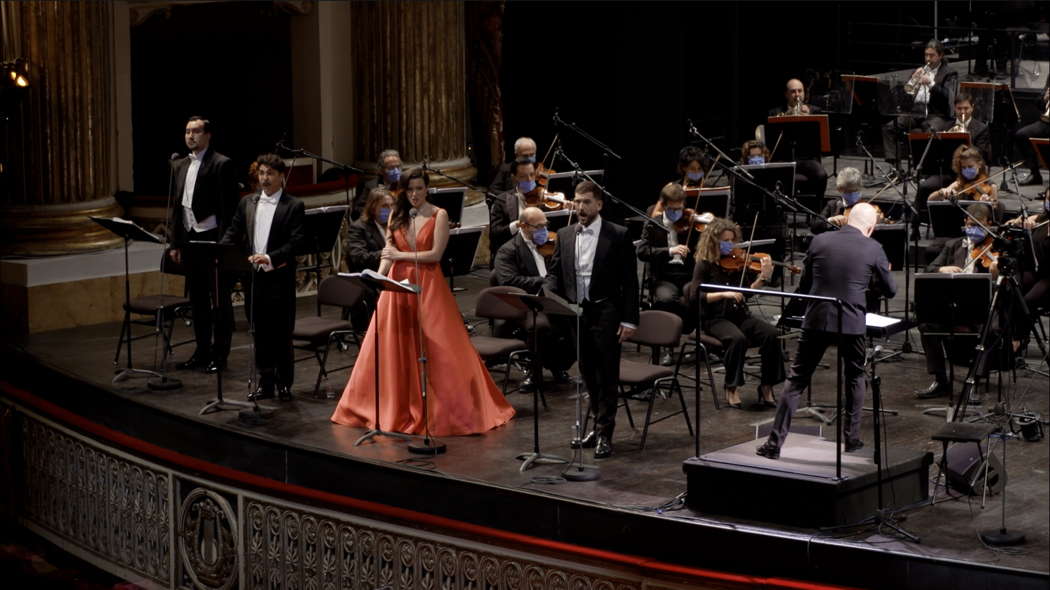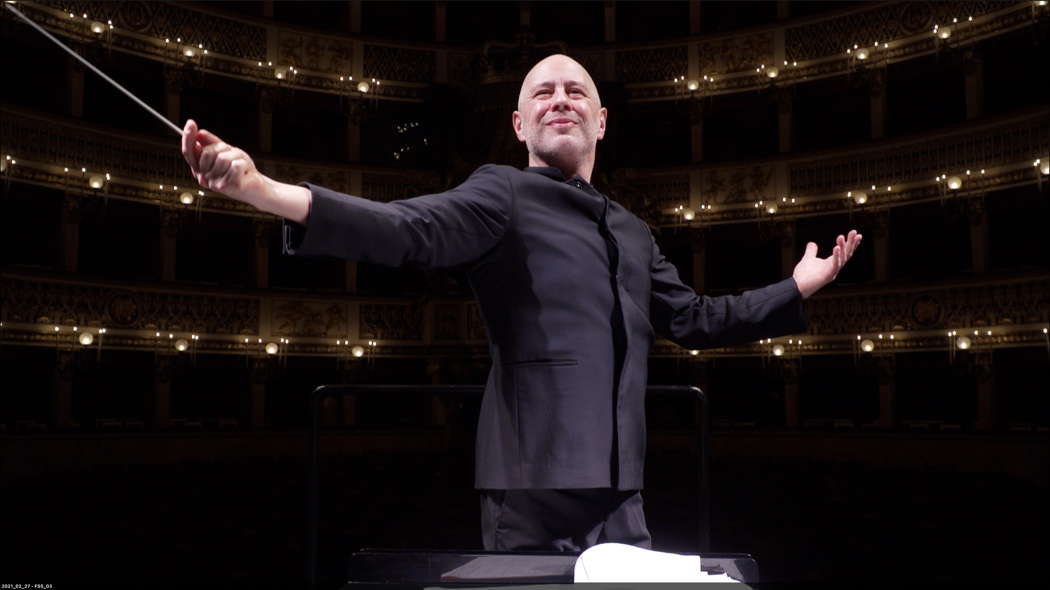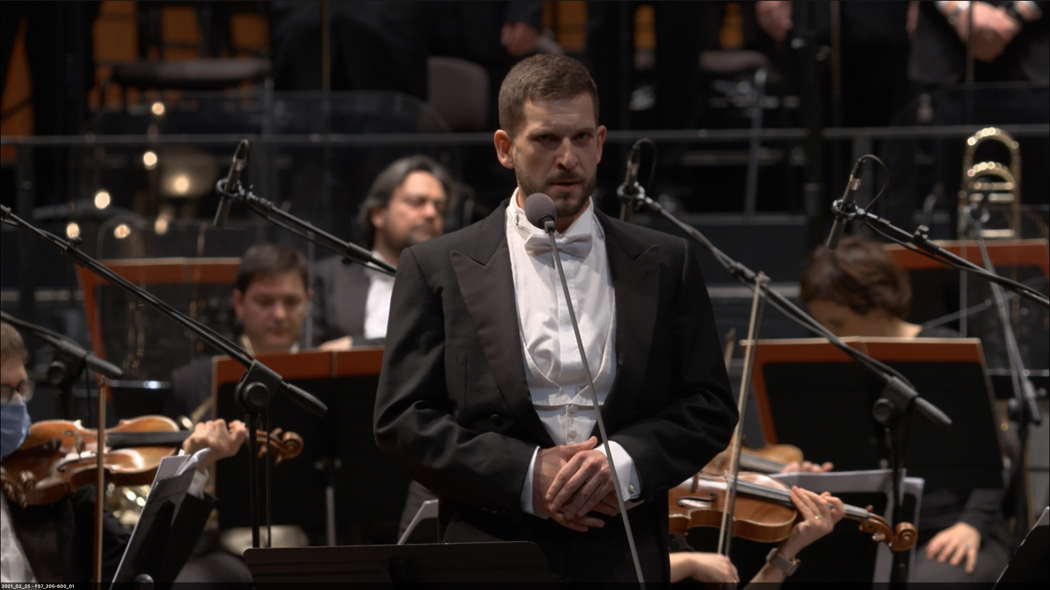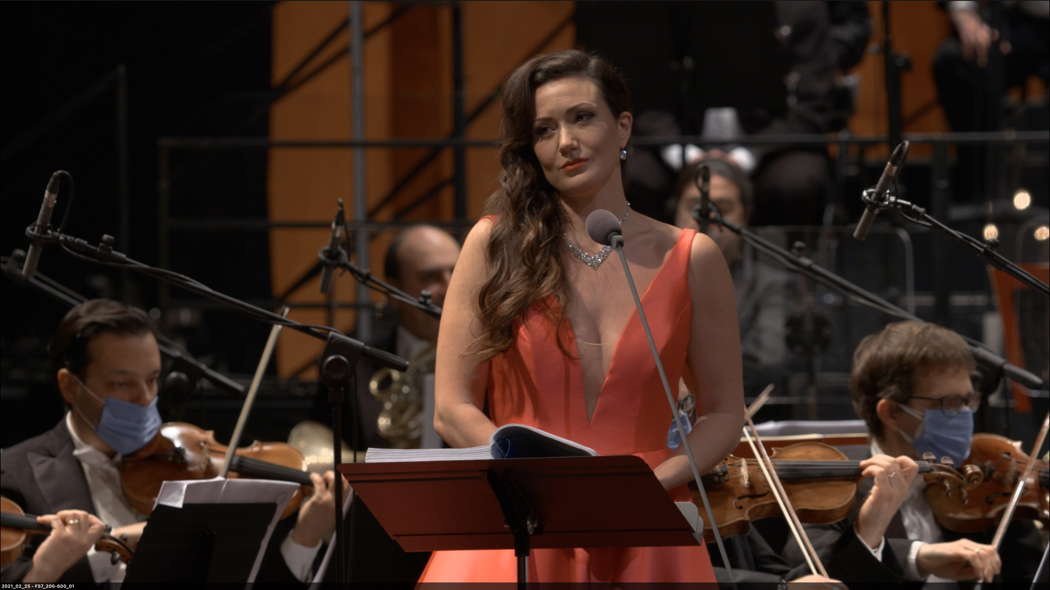 DISCUSSION: Defining Our Field - what is 'classical music' to us, why are we involved and what can we learn from our differences? Read John Dante Prevedini's essay, watch the panel discussion and make your own comments.
DISCUSSION: Defining Our Field - what is 'classical music' to us, why are we involved and what can we learn from our differences? Read John Dante Prevedini's essay, watch the panel discussion and make your own comments.
 UPDATES: There's a new feature every day at Classical Music Daily. Read about the various ways we can keep in touch with you about what's happening here.
UPDATES: There's a new feature every day at Classical Music Daily. Read about the various ways we can keep in touch with you about what's happening here.
Half and Half
GIUSEPPE PENNISI is not entirely convinced by Teatro San Carlo di Napoli's new production of Gioacchino Rossini's 'Il Turco in Italia'
Tired of his partner Zaida, the handsome Turk Selim lands in Naples (as he believes Italian women are beautiful and available). There he meets Fiorilla, married to the old Geronius, but courted by the fatuous Narcissus, while Zaida (disguised as a gypsy), with the help of the poet Prosdocimo, wants to reconquer him. After a chain of misunderstandings, each ends up under the right bedsheets.
In the eighteenth century, this would have triggered a farce, while in 1814, the twenty-two-year-old Gioacchino Rossini and the twenty-five-year-old Felice Romani, both already full of experience not only of theatre in music but also with women, built a cynical and bitter comedy - not without funny moments - which, at its debut, puzzled the audience at La Scala. It was the last opera that Rossini composed for Milan, before moving to Naples. At La Scala, the opera had only a few performances. Then it was ignored until 1950, when Gianandrea Gavazzeni rediscovered it, with a very young soprano, Maria Callas as protagonist, in the small seasons for new voices at Teatro Eliseo in Rome.
Nowadays, Il Turco is an opera performed with some frequency in Italy and in repertory in major German and American opera houses. The main difficulty is to keep the bitter taste despite the almost pochade style. A few years ago, in Rome, Stefano Viezoli - a veteran of Il Turco - succeeded well in the staging: the plot was set in the 1930s, among the do-nothing youngsters of Naples in Piazza Amedeo. The comic aspects dominate the first part, while cynicism and melancholy are all round in the second. The work is, in fact, an 'adult comedy' about marital fidelity.

A scene from Rossini's Il Turco in Italia at Teatro San Carlo di Napoli
This is the second San Carlo di Napoli production of Il Turco in Italia that I've seen and listened to. The first was in 2004, staged as a comic opera. This 2021 production, in concert form, does not fall into farce, as was also the case at the Rossini Opera Festival in 2016 (reviewed as Rossini in a movie set in Music & Vision Magazine, 25 August 2016). There were all the prerequisites for an excellent performance: valuable conductor, excellent cast.

Carlo Montanaro conducting Il Turco in Italia at Teatro San Carlo di Napoli
However, two mistakes have been made. There was a technical one: too low an audio volume - those who had them were forced to put on headphones. The other was musical: almost all the recitatives have been cut, making the second part of the work incomprehensible. For this reason, at the end of the streaming on 19 March 2021, only about seventy audience members were still connected. I felt it was half of a very good performance.
This was a real shame also because the singers acted in the right tone of very modern comedy – so modern that it was not liked, or little liked, in the first decades of the nineteenth century. An important point of notation: Il Turco in Italia is not a work of arias as it would have been in Rossini's time, but of numbers with several voices - a masterpiece that about the coffee serving. In this production, in addition to excellent and delicate conducting by Carlo Montanaro and a good choir (prepared by Gea Garatti Ansini), there are suitable and close-knit voices. Marko Mimica was Selim.

Marko Mimica as Selim in Il Turco in Italia at Teatro San Carlo di Napoli
The French soprano Julie Fuchs was Forilla - a difficult role but faced with all the required coloratura.

Julie Fuchs as Forilla in Il Turco in Italia at Teatro San Carlo di Napoli
The cast included two veterans - Paolo Bordogna as Don Geronimo and Alessandro Luogo as Prosdocimo; the young Ruzil Gatin sang Narcissus, Gaia Petrone was Zaida and Filippo Adami took the part of Albazar.
There was excellent concertato ... for those who had headphones.
Please try again, Teatro San Carlo!
Copyright © 21 March 2021
Giuseppe Pennisi,
Rome, Italy

NINETEENTH CENTURY CLASSICAL MUSIC ARTICLES


